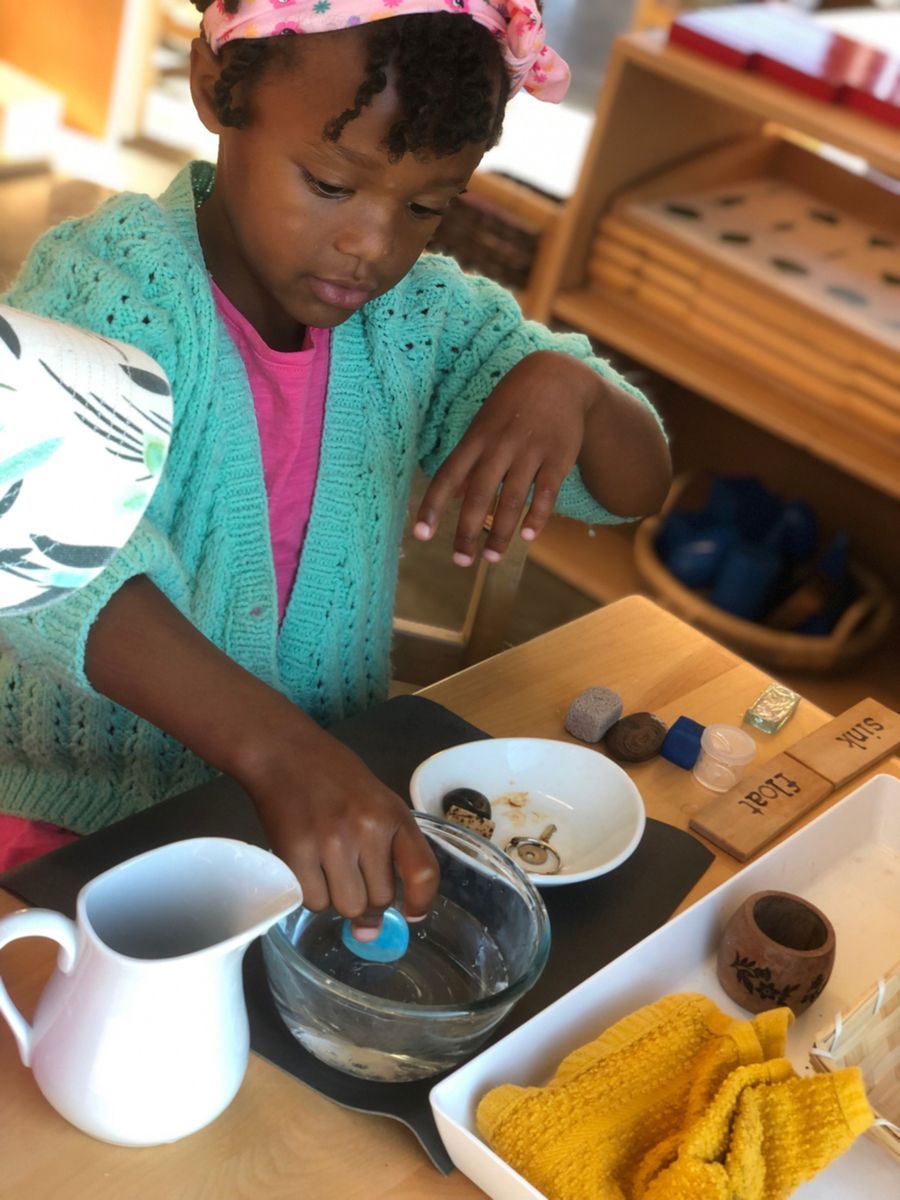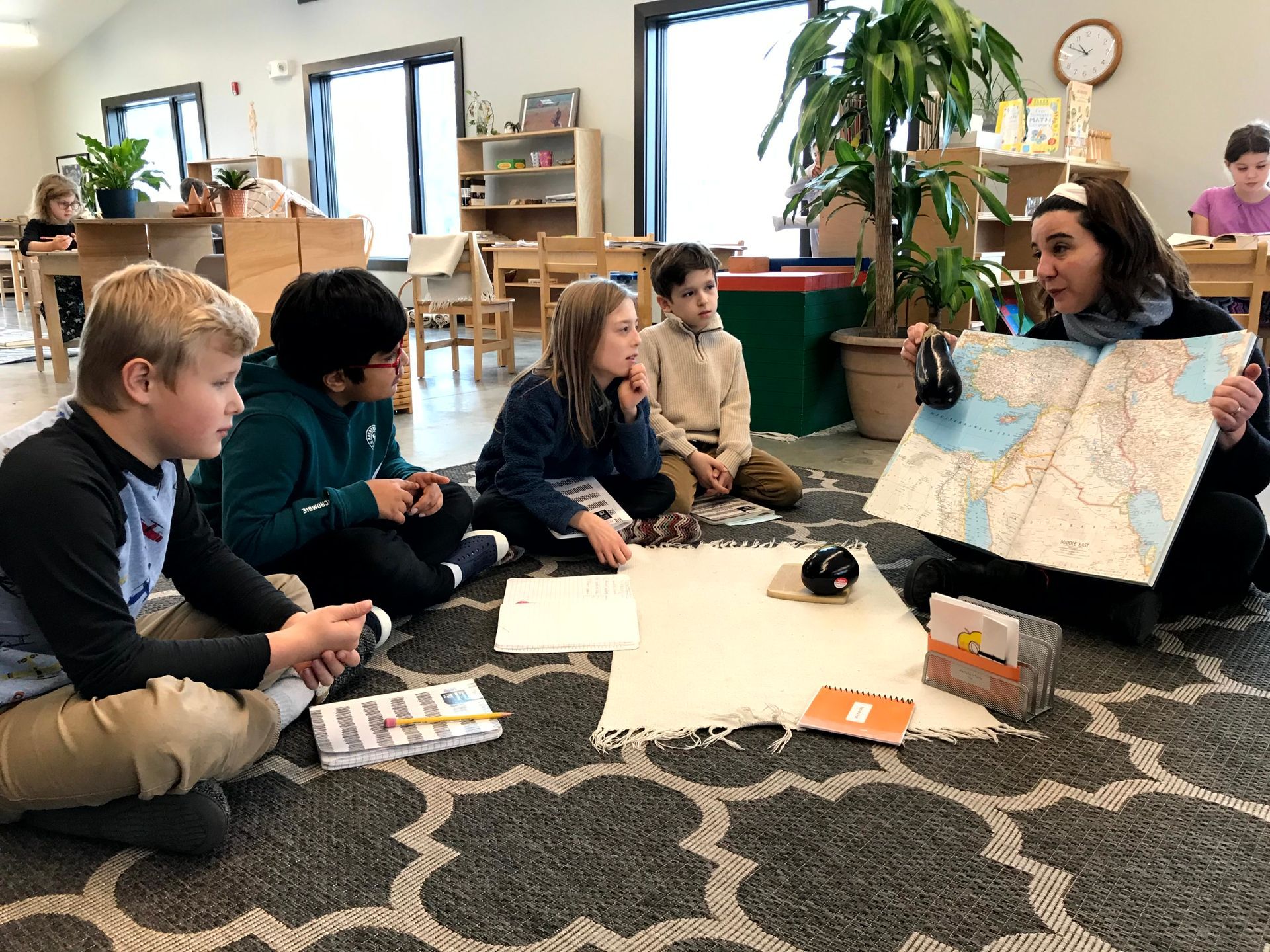Social Development in the Elementary Classroom
One of the most exciting experience for an educator is to witness how and to which extent the children are able to learn and grow on a social level. In the elementary years Maria Montessori used the term “2nd plane characteristics” to describe the human development at the ages of 6-12.
The characteristics of the second plane include the reasoning mind and the self-construction of the child, a stage in which the child is building himself intellectually as a person. In this peculiar stage of their lives there is a great curiosity and imagination accompanied by herd instincts and desire to work in groups with their peers. This is the age when children enjoy learning about heroes and mythology and are eager to explore the world surrounding them as a means of understanding themselves and the other being in the human consortium.
In this regard, Montessori education offers infinite possibilities to explore within the classroom but also outside the classroom with its organized Going out activities lead by the children.
The Montessori prepared environment allows the children of the elementary years to have a functionally and aesthetically appealing space that meets their needs and curiosities. Children are free to sit where they want and work with whom they want and are able to decide what works they would like to do and most important, when and how they want to do it. This helps children learn how to make decisions and not be afraid to make mistakes, giving them a great room to grow, to explore possibilities and improve unconditionally.
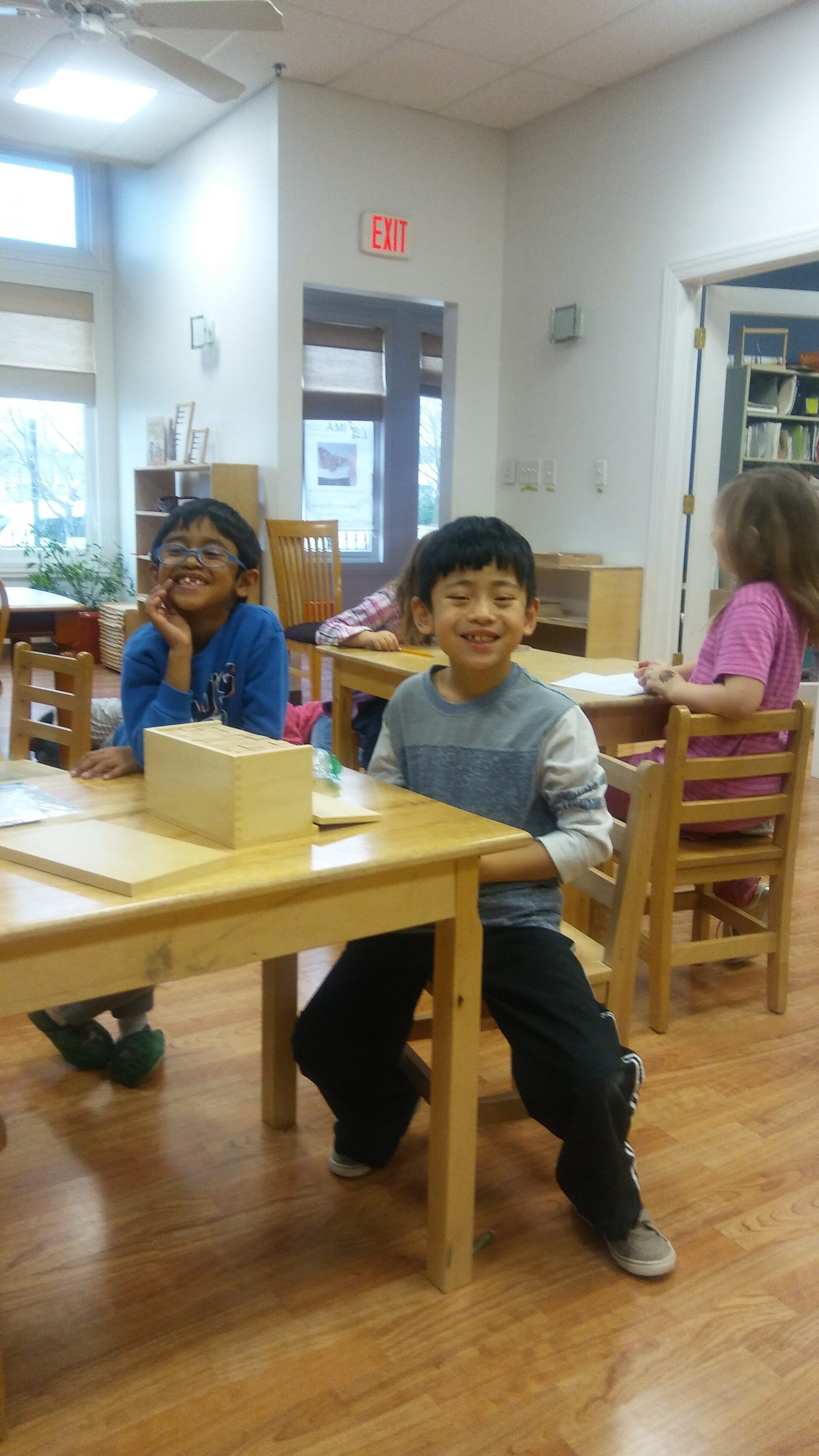
Socialization in the elementary is an essential aspect of this developmental period of the child and the Montessori classroom offers numerous opportunities to gain this experience. Some of them include taking care of their environment and organizing their snack. As a classroom the whole class organizes with each other how the classroom should be put back in order. Taking care of the classroom allows the elementary child to appreciate and love their environment. They work as a team, and they learn how to divide the work amongst each other. When something is not done correctly, they learn how to gracefully help each other correct it.
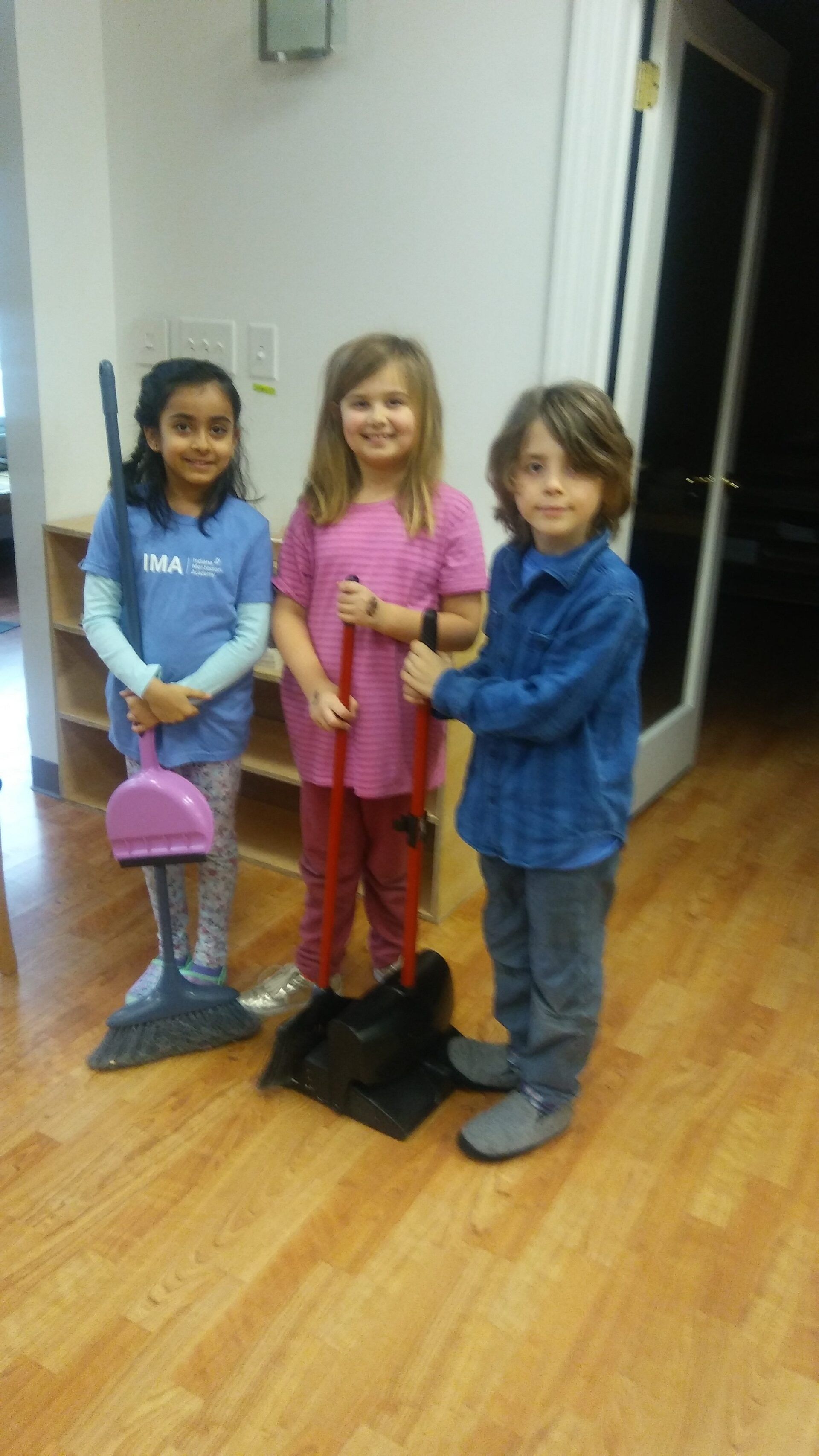
Another opportunity is organizing and preparing snack. The children responsible learn how to do the correct portions and set it up beautifully. Most importantly they are working together and dividing the work. Lastly, they organize their Friday agenda meetings. The children put together what will be discussed and in what order. There are numerous events that they also put together and organize.
In the elementary classroom it is also easy to spot a child’s weakness and strengths. Since there is the freedom to see the child in his/her true state, an experienced guide is able to support the child with the child’s weaknesses and making stronger the child’s strength.
Montessori children become excellent team players and learn how to work with different personalities, and it is not just about cleaning up or preparing a snack. Behind all that work there is a big lesson that needs to be learned in an environment that allows the child to meet their needs and satisfy their curiosities. Some of the key life skills the children develop are tolerance, patience, good communication skills, self confidence and open mindedness. All these qualities are necessary skills to live a happier and more successful life. These are values that the children need for the future of tomorrow in whatever path life takes them.
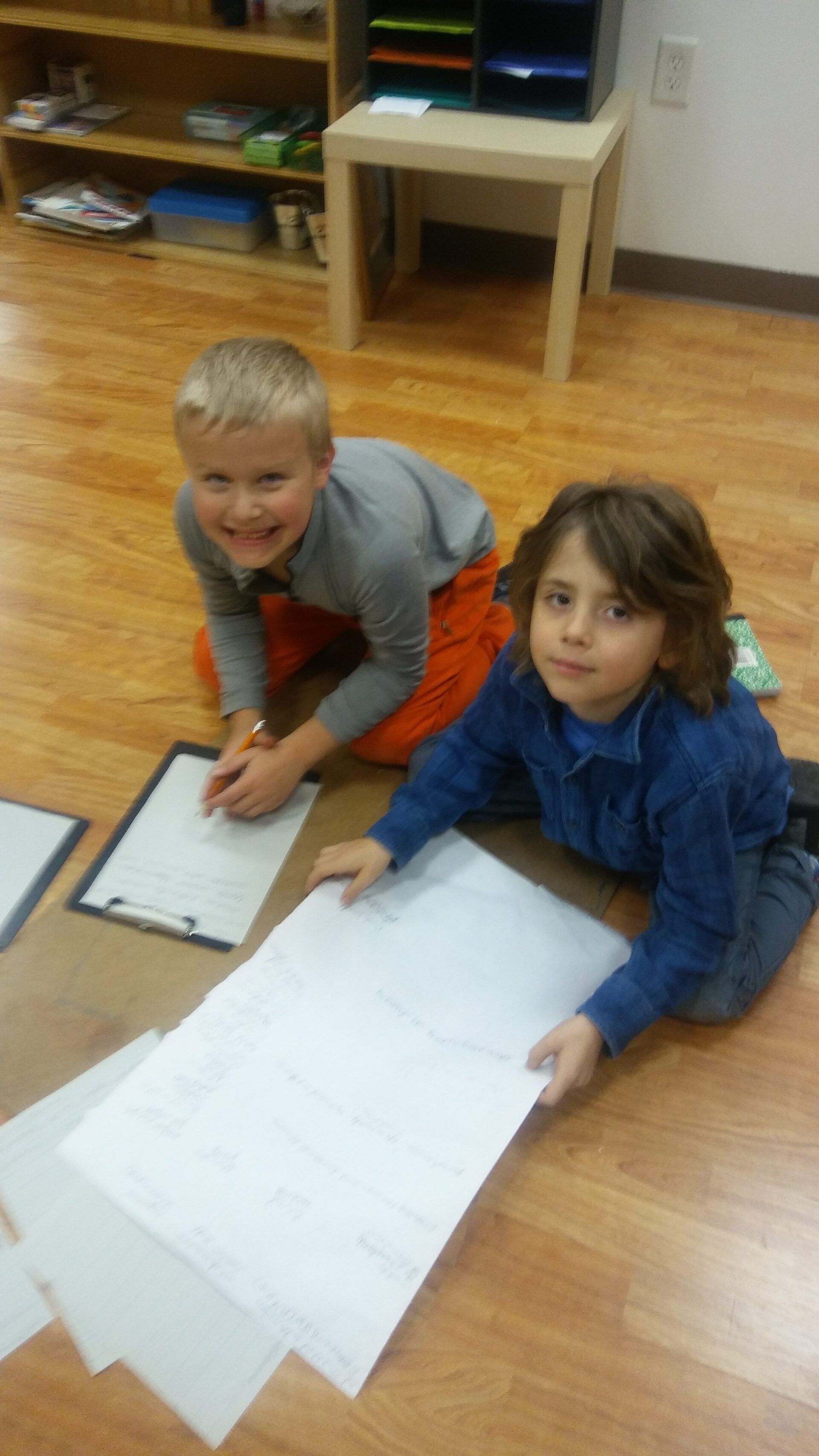
I strongly encourage parents to come out and visit the Friday agenda meetings to see and hear the children’s thoughts and viewpoints. In the agenda meetings the children share their interests and their thoughts on lessons they received during the week. We provide children with Cosmic Education. It is a term that Maria Montessori used to explain the interdisciplinary curriculum of the elementary child according to their developmental needs.
Lastly, I cherish observing all the creativity the children are capable to create when given the environment suitable to their characteristic needs. It is a true treasure to see this human energy wanting to change the world for the better.
By: Suzette Vetrini
Elementary Directress, IMA


